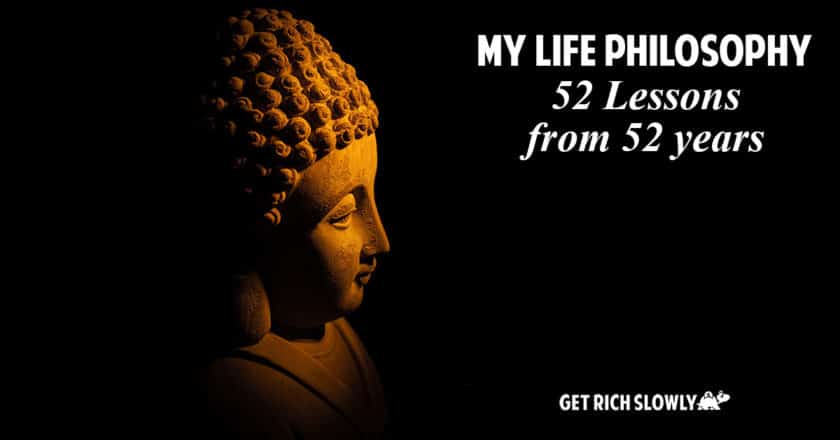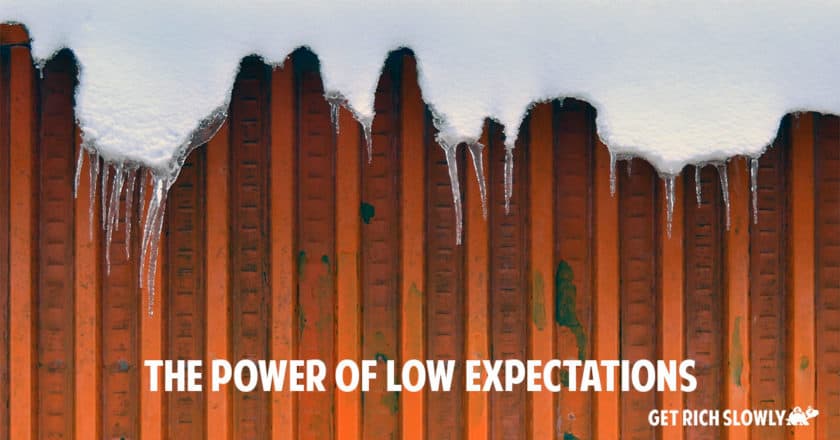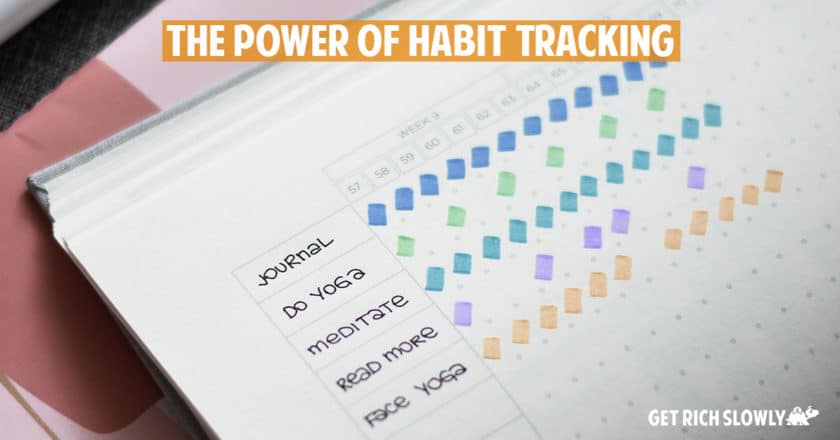A man of no ambition
A memory came to me this morning while I was walking the dog, a memory of those days when I was fresh out of college and just beginning to work for my father at the box factory.
A salesman had come knocking on our door. This was strange since the box factory was (and still is) located in a rural area. But somehow this guy had found us and he was there to make his pitch: He was a salesman who trained salesmen. (And, presumably, saleswomen although this wasn't part of the spiel in 1992.)
Dad, amused, introduced this fellow to me. "This is J.D.," Dad said. "He's our salesman. Talk to him." So, this guy sat down with me in a back room of the shabby trailer house that served as company HQ. (This was the very trailer house I'd grown up in. And trust me when I say it was a pit, a sty. It was just as bad as you're imagining. Maybe worse.)
Growing up poor (and how it messed with my mind)
A couple of weekends ago, Kim and I enjoyed a short vacation on the Oregon Coast. She's been taking foraging classes, and she had an early morning workshop on harvesting sea vegetables one Sunday. Rather than wake in the middle of the night to drive out, we rented a small place in Tillamook and took the dog for an adventure. (The dog loves the coast.)
We let Tally lead us on a walk through town one rainy afternoon. Coming home, we cut through a trailer park. "We're in the poor part of town," Kim said.
"Yep," I said. "But look at that trailer house right there. That is almost exactly like the one I grew up in." Here's the trailer I grew up in:
The seven habits of highly effective people
Because I've been driving back and forth from Corvallis to Portland so much lately to attend to my mother and cousin, I've had ample to time to listen to audiobooks. I find that I'm actually grateful for the opportunity to "read" in this fashion. (Like many folks, the past decade has destroyed my attention span and ability to read for long periods.)
I'm currently reading Stephen R. Covey's classic The Seven Habits of Highly Effective People. (Five stars on Amazon in 5672 reviews!) I read the book once long, long ago — sometime during the mid-1990s. I've referred to it now and then as the years have gone by, but mostly I've forgotten its lessons. Continue reading...
Using buy-in to create motivation
Life has been lumpy lately. I've been dealing with some heavy stuff in my personal life — Mom, my cousin Duane, etc. — and that's left me feeling low. Combine that with my natural inclination toward depression, and you've got a recipe for a gloomy guy.
That said, I woke up feeling great today. And that energy carried through as I had my regular Zoom call with Diania Merriam, the organizer of the EconoMe Conference.
Diania and I started these calls for professional reasons, but after nearly two years they've evolved into something else. Now they're mostly a chance for us to help each other with our respective mental health struggles. During today's conversation, we had an interesting digression about personal finance.
One thing to my people (A prayer of thanksgiving)
I recently flew to Cincinnati, Ohio to attend the second-annual EconoMe Conference. I had one of the best weekends of my life.
I can't say that the conference itself was the reason for this peak experience. There's no question that I enjoyed interacting with the speakers and attendees. As the video below demonstrates, the main-stage talks were both entertaining and educational. The conversations at the venue were great too. I reconnected with old friends and made some new ones.
https://www.youtube.com/watch?v=6dIKlFgCqyk
My personal philosophy of life: 52 lessons from 52 years

On this day in 1969, baby J.D. entered the world. I don't think there's any way my parents could have predicted the path their firstborn would take through life. It hasn't always been easy — no thanks to the obstacles I've placed in my own way — but I've really had a wonderful (and interesting) life, and I look forward to whatever time is left me.
I'm going to commemorate my 52nd birthday by sharing 52 of the most important things I've learned during my time on Earth. These are the most important pieces of my life philosophy.
My Life Philosophy
Before we dive into the rest of my life philosophy, I want to make something clear: I am no wiser or smarter than anybody else. And I'm certainly no better. But I am an individual.
The power of low expectations

At the end of January, I had an epiphany.
Kim and I were sitting in the living room one evening, relaxed in our easy chairs, both reading books. All four of our beasts were nestled nearby. The house was quiet. For the first time in forever, I felt completely content.
For maybe twenty minutes, I paused what I was doing and simply savored the moment. I stopped. I looked around. I made time to be present in the Now.
The power of habit tracking

For decades, I've been a proponent of habit tracking. Habit tracking sounds and feels nerdy to a lot of folks, so many people avoid it. That's too bad. Habit tracking is a powerful tool that can help you make better decisions about your life.
Let me share an example.
Over at Reaktor, Olof Hoverfält recently published a long piece about why he's tracked every single piece of clothing he's worn for three years.<
A year-long spending moratorium
While walking the dog last weekend, Kim noted that I've been getting a lot of packages in the mail lately. "What's up with that?" she asked.
I sighed.
"Remember how we shared that bottle of champagne on New Year's Eve?" I said. "Well, that got me buzzed enough that I sat down at my computer and ordered a bunch of used books. Mystery novels and manga. So, those are starting to filter in." That's right. I got drunk on New Year's Eve (because I no longer drink regularly, I've become a lightweight) and ordered old John le Carré paperbacks and Lone Wolf and Cub compilations from ABE Books. I lead an exciting life, my friends. Continue reading...
Start where you are

Ah, a brand new year.
It's good to have the sense that we can begin anew, that we can shed some of those habits and behaviors that have been holding us down while adopting new patterns that lead us to become better humans.
I actually enjoyed a fruitful year. I lost 24 pounds. I (mostly) gave up alcohol. I made progress in my fight against depression and anxiety. And, most importantly, I resumed the habit of writing regularly.
![The Seven Habits of Highly Effective People [The Seven Habits of Highly Effective People book cover]](https://www.getrichslowly.org/wp-content/uploads/the-seven-habits-of-highly-effective-people.jpg)